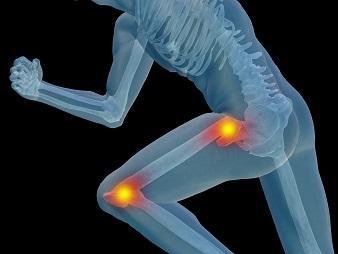
A Henry Ford Hospital study, presented recently at the American Association of Hip and Knee Surgeons meeting in Dallas, found that injecting a drug called ‘liposomal bupivacaine’ around the knee during surgery can help assure effective post-operative pain relief. The study involved evaluation of 216 patients for pain control on the first two days after surgery. Half the patients received traditional pain control doses of a common numbing medicine injected in the groin area. The other half received liposomal bupivacaine at the site of the surgery. Jason Davis, the study’s senior author said that the traditional pain control method came at the price of weakness causing reluctance in patents to walk post surgery. On the other hand, liposomal bupivacaine gave significant pain relief. These patients found it comfortable to walk early on following the surgical procedure, without the side effects of traditional technique.
Dr.Davis also confirmed that the use of this new medicine was found to give a boost to the confidence of the patients in the recovery period. This helped ensure full participation of the patient in the physical therapy as a part of rehabilitation. This finding comes as heartening news for all those whose loved ones are home bound for not opting for knee replacement surgery out of the fear of post-operative pain. Studies like these are a boon to patients, revolutionizing healthcare and lifestyles and literally restoring one’s independence.
Contributed by Dr. Rachita Narsaria, MD
References:
1)http://www.mayoclinic.org/diseases-conditions/osteoarthritis/basics/definition/con-20014749
2) http://www.medicinenet.com/total_knee_replacement/article.htm
Related Posts
Cigarettes May Inhibit Inflammation Treatments
Axial spondyloarthritis, also known as AxSpa, is a chronic…






